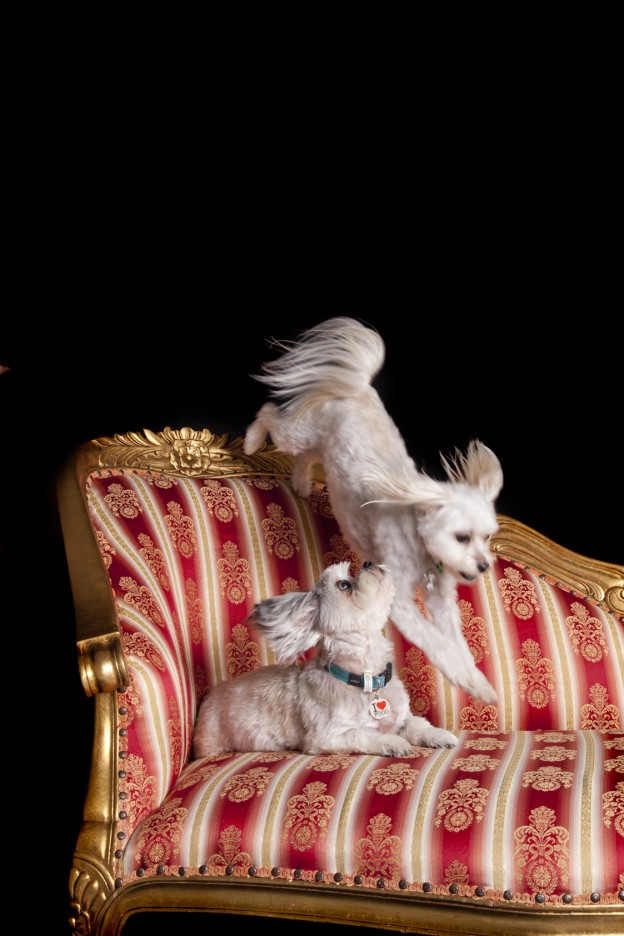
Ben Nour discovers how to stop your dog jumping up on the furniture and digging in the garden.
Dogs are the most common pet in the Australian household, and it’s not hard to understand why – as any owner can attest, a dog can bring much joy to a person’s life. Be it a game of fetch or a cuddle on the couch, it seems almost every interaction with our canine companions results in fun for both of us. But of course that’s not to say dogs aren’t without their faults.
Digging in the garden and jumping onto furniture are two examples of behaviour dog owners are often faced with. Although frustrating (especially after you’ve caught them for the hundredth time!), these doggy behaviours can be easier to deal with than you might think.
Can you dig it?
First things first – why do dogs dig in the garden? Why is it that when you return an hour after planting that Petunia you find your normally sweet Boxer has dug it up? There is no single reason, according to Dr Joanne Righetti.
“Dogs dig for many reasons, including to find a cool spot in summer or a warm spot in winter, or because they smell something like fertiliser. They also might be anxious or bored and are seeking to relieve that feeling.”
While there is a variety of reasons why dogs dig, what’s important to remember is that this behaviour is natural. Dogs shouldn’t be punished for this behaviour – yelling at a dog will not discourage digging, particularly as they might not understand that they’ve done something wrong.
“Punishing a dog will not deter digging. The dog is digging to satisfy a need. Owners need to satisfy this need in ways that both they and their dog enjoy,” says Dr Righetti.
Dr Righetti suggests owners instead provide appropriate outlets for digging rather than seeking to stop the behaviour altogether.
Examples of such outlets include:
- a children’s sandpit in which an owner can hide toys or treats
- travelling to a dog-friendly beach where they dig into the sand.
In the case of garden plants, Dr Righetti suggest owners fence off precious sections of the garden or relocate their dog to a different area of the backyard.
“Digging is behaviour that is instinctual to dogs and it won’t be removed without centuries of breeding. Instead, owners can help provide adequate stimulation for their dog in ways that are more appropriate and appealing to both the dog and the owner. Dogs can be encouraged not to dig by owners rewarding other behaviours that are of equal importance and satisfaction to their dog,” Dr Righetti.
Getting Fido off the furniture
Just as every dog is different, so is every owner. While some might be perfectly happily with their dog sleeping on their bed or cuddling up next to them on the couch, many people would prefer their dogs off the furniture. But why do dogs insist on jumping up? Are they being deliberately disobedient? Nothing so malicious, assures Dr Kersti Seksel.
“The number one reason dogs jump up onto furniture like couches is because of sheer comfort,” she says.
No human would want to sleep or rest on an uncomfortable surface – and neither do dogs. Jumping on furniture is not a sign of disobedience, but rather of discomfort – behaviour to which, much like digging, the key is to provide an alternative to relieve the discomfort. Punishing is the wrong reaction to take, in part because your dog will not understand what it has done wrong, and punishment could lead to distress for the dog.
Instead, owners should promote and encourage their dog to use a mat, blanket or dog bed – anything that will appeal to a dog as being just as comfortable as your couch or armchair.
“The alternative you provide will be just as attractive to them. Couch or mat, ultimately it doesn’t make a difference to them, assuming both are comfortable,” says Dr Seksel.
Providing this alterative and encouraging use of it through reward, be it verbal encouragement or treats, will lead to your dog stopping jumping on the furniture — leaving both you and your dog happy.
REMEMBER!
Positivity leads to progress – make sure to encourage good behaviour and find alternatives when they are displaying bad behaviour.
Make training easier with help from the professionals - on our DOGSLife Directory now!



